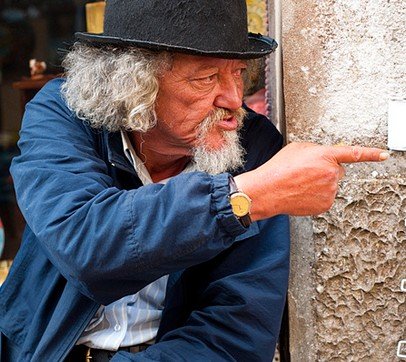Can you tell me the way…..
A tourist was driving through the beautiful Irish countryside and obviously lost. He he saw a local sitting by the side of the road and stopped to ask directions. ‘Excuse me’ said the tourist. ‘Can you give me directions of how to get to Dublin?’. The local considered for a while, and said ‘Well, I wouldn’t start from here’.
That probably is exactly the situation many destination marketing organizations (DMOs) find themselves in today.
In the USA and probably many other countries, DMOs grew out of the the local chamber of commerce – the result of concerned local businesses wanting to grow tourist visitation. Eventually, they decided that the skills needed were beyond the chamber and local government were persuaded to take over the role and formed a Convention and Visitor’s Bureau or local tourist board. To fund this they either committed an element of their budget derived from local taxation, or they collected a tourist or bed tax from visitors. Either way, the DMO is now normally administered by a group of interested and knowledgable local citizens, and ultimately controlled by local politicians – City Councilors, County Commissioners or a whole host of other titles, depending on where you’re located.
In an ideal world, you’d set up this organization before any tourists arrived, and before any infrastructure had been built. Your group of advisors and Councilors would all have significant knowledge of tourism, marketing, commercial and environmental issues – and common sense (the least common element in the Universe!) Then you could influence decisions like ‘no buildings to exceed the height of a palm tree’, ‘visitors must not leave items on the beach overnight’, ‘create sufficient car parking to anticipate demand in 20 years’ – you know the sort of thing.
But it’s not an ideal world.
For a start the infrastructure wasn’t planned. Like Topsy it just ‘grewed’. No one really planned much further ahead than next season. The one big hotel in town became the dominant commercial interest and was then bought out by a Chain.
In the ski resort, the lift system was already 30 years old.
To cap it all, the city elected representatives are all retired hydraulic engineers (I have nothing but admiration for hydraulic engineers, the occupation just randomly flew into my mind!) or lawyers. No knowledge of tourism, commercial imperatives, associated technology or marketing, no matter what their other undoubted qualifications may be.
Add to this toxic mix the speed of change in travel technology, emergence of social media, the rise of peer reviews, changing tourist demographics and worldwide political changes and you have, to over cliché this particular pudding, a perfect storm.
In our part of the world (Northwest Florida) this has been highlighted by a couple of recent events.
One is the emergence of Airbnb which has put a strain on how and if Tourist Development Tax (Bed Tax for want of a better name) is collected. This article (http://ow.ly/7QMp302ESAv) demonstrates how Santa Rosa and Escambia Counties are trying to cope. It’s almost as if the Airbnb concept has suddenly appeared. Uber has had the same effect on taxi regulation around the world.
The other issue revolved around the running of a country music event in Okaloosa County. The idea was suggested that the county should run the event as a trial to provide business for the local convention center. If nothing else, they would break-even and learn lessons for future events.
The lessons learned were that the county were hamstrung by their (possibly understandable) complex and long winded purchasing and contract writing system; that having to refer everything to two committees including the Board of County Commissioners slowed the whole system to a snails pace; and that really they should leave such things to people who knew what they were doing.
Oh, and they made a staggering loss on the event.
The latter example resulted in the sensible decision that in future, such events should be outsourced to the private sector. A good lesson learned and kudos to the people involved for acknowledging this.
So, how do we move forward?
Speed and agility are the watchwords for tourism today. DMOs must be able to turn on a dime (or sixpence, depending on your location) to react to changes, developments and opportunities.
The nature of government is that it’s unlikely (though not impossible) to have the knowledge, awareness and nimbleness to recognize and react in a timely manner.
A local government agency that I know has taken a year to create a new website, and it hasn’t been implemented yet. They’re in tourism and have lost a whole season, possibly two. At the same time a private company has created a state of the art website, with different versions for smartphones and tablets; included video, web cams and on-line booking; acquired partners; and all in two months from pulling the trigger. The site will go live on schedule and on budget.
True, some private companies are as slow as government (An accommodation provider has taken 4 years to change a website and no mobile version. Hello?), and not all local government is unresponsive. But you get my point.
The suggestion is that government run DMOs should at least partner with private companies if not outsource the whole business. Visit Florida is a great example of a public/private partnership, although some politicians do want to be more involved which is a questionable move.
It’s a conversation well worth having between the politicos and private enterprise. Locals need to get involved too.
We probably shouldn’t have started the journey here, but that’s the where we are. We just need to get our directions, decide on our route and follow it – fast.






